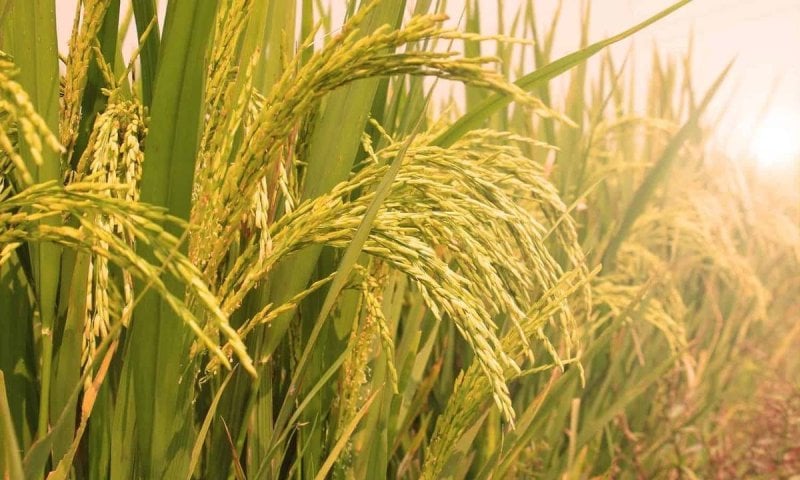Tags
‘Attaining autarky advisable during times of rice trade restrictions’
Former Indian agriculture secretary Siraj Hussain emphasizes investing more on climate-smart agriculture

File image of stocked rice in a government warehouse in Brahmanbaria. Photot: Focus Bangla
Bangladesh needs to ensure self-sufficiency in cereal productions, especially in rice, its staple, considering the current insecurity in availability of rice and price volatility of cereals in the international commodity market.
In an interview with Dhaka Tribune this week, Siraj Hussain, former agriculture secretary of India, placed special emphasis on Bangladesh employing everything at its disposal to make sure it attains self-sufficiency in cereals, especially in rice, by investing more in research on climate-smart agriculture.
Hussain’s advice comes at a time when Bangladesh has just slapped an export ban on both aromatic and non-aromatic rice as a precautionary measure to avoid any demand-supply mismatch in the domestic rice market in the near future.
According to yesterday’s market report by the government’s Department of Agricultural Marketing (DAM), the domestic rice market witnessed nearly a three percent price increase over the last one month.
India, the world’s largest rice exporter, has put in place an export ban on rice since July 20 this year, in its effort to rein in rice price inflation. Only 10 days ago India gave a special export approval for 1.34 million tons of rice to seven Asian and African nations, including Nepal, Malaysia and the Philippines.
Responding to a query on how Bangladesh, being a next-door neighbor and a traditional importer of Indian rice, can ensure guaranteed preferential treatment during times like this (when bans are in place, trading is limited), Siraj Hussain said: “Bangladesh should engage diplomatic channels, making sure it gets some preference during times of trade restrictions.”
On the question of how a country like Bangladesh, with serious constraints of very limited land resources, can ensure self-sufficiency in all cereals, i.e. rice, wheat, etc, the former Indian agriculture secretary emphasized investing more on varietal developments to face challenges of climate stresses and grow more rice from less land.
Over 70% of Bangladesh’s farmlands are given over to rice, leaving the remaining 30% for all other crops – wheat, maize, jute, sugarcane and spices . Bangladesh used to grow two million tons of wheat in the 1980s but has since reduced the figure to a million tons a year now, increasing the country’s dependency on imported wheat. However, during the same period, Bangladeshi farmers managed to attain a yearly maize production of over four million tons, thereby saving money otherwise used to be spent on maize imports.
Climate change fallout in agriculture
Siraj Hussain, now serving as an advisor to the New Delhi-based Federation of Indian Chambers of Commerce and Industry (FICCI), told Dhaka Tribune that agrarian economies in this region, including Bangladesh and India, are vulnerable to different climate change-induced shocks that have serious ramifications in their agriculture production.
He stressed providing more policy and price support to farmers so that they can face the challenges of climate-induced shocks.
He said farm credit in India is highly subsidized with interests ranging as low as 3% or even less. Besides, the Indian government provides good support prices to cereal growers by buying crops directly from farmers under a public procurement program.
But in Bangladesh, Hussain noted, the government buys rice instead of paddy under public procurement, thereby benefiting millers more than farmers. “It will be much more beneficial if the government here also buys paddy directly from the farmers.”
Siraj Hussain, who also served for six years at the premier economic think tank Indian Council for Research on International Economic Relations (ICRIER), said India has very good sugarcane varieties and Bangladesh should give emphasis on growing more cash crops like sugarcane.
https://www.dhakatribune.com/bangladesh/agriculture/329691/%E2%80%98attaining-autarky-advisable-during-times-of-ricePublished Date: November 1, 2023






